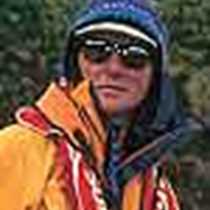Prion Island & Salisbury Plain, South Georgia
I have been traveling to the Antarctic for the past 19 years. Just south of the Antarctic Convergence lies the Island of South Georgia, perhaps my favorite place for wildlife, and certainly the most dazzling. I have never imagined a place as achingly beautiful as this wildlife-packed, tussock grass-lined, snow-covered island. As I reflect on another day of hiking in the hills, watching king penguins accompanying the Zodiacs, and the displays of the gigantic wandering albatross and the clever brown skuas, I not only want to write about it, but also read. I think of a wonderfully eloquent book written by two remarkable people, Tim and Pauline Carr.
Please everyone, go out and see them speak on behalf of the South Georgia Heritage Trust, or get a copy of their most magnificent book, Antarctic Oasis. I can never come up with the words to justify my magnetism to this spectacular wildlife sanctuary, so I borrow a few words from the preface of their book:
"This book is for those of us who grew up dreaming of a garden of Eden where you could walk unharmed among abundant and fearless wildlife in a beautiful wilderness – an oasis in a world increasingly out of step with nature. For twenty-five years our little sailing boat Curlew tracked across the oceans of the world and visited many countries, some with great individual charm. Always, though, we traveled on toward some elusive and ill-defined goal. More than a thousand miles east of Cape Horn and almost that distance northeast of the Antarctic continent, we reached the island of South Georgia and saw its awesome glacier-clad peaks rising steeply from the sea for most of its hundred-mile length. On closing with the coast the sounds and sights of tens of thousands of breeding birds and seals were overwhelming. We knew that we had found the most exceptional place on earth. We fell under its spell and so here we decided to stay.”
I too have fallen under its spell. I hope one day you will join us.
I have been traveling to the Antarctic for the past 19 years. Just south of the Antarctic Convergence lies the Island of South Georgia, perhaps my favorite place for wildlife, and certainly the most dazzling. I have never imagined a place as achingly beautiful as this wildlife-packed, tussock grass-lined, snow-covered island. As I reflect on another day of hiking in the hills, watching king penguins accompanying the Zodiacs, and the displays of the gigantic wandering albatross and the clever brown skuas, I not only want to write about it, but also read. I think of a wonderfully eloquent book written by two remarkable people, Tim and Pauline Carr.
Please everyone, go out and see them speak on behalf of the South Georgia Heritage Trust, or get a copy of their most magnificent book, Antarctic Oasis. I can never come up with the words to justify my magnetism to this spectacular wildlife sanctuary, so I borrow a few words from the preface of their book:
"This book is for those of us who grew up dreaming of a garden of Eden where you could walk unharmed among abundant and fearless wildlife in a beautiful wilderness – an oasis in a world increasingly out of step with nature. For twenty-five years our little sailing boat Curlew tracked across the oceans of the world and visited many countries, some with great individual charm. Always, though, we traveled on toward some elusive and ill-defined goal. More than a thousand miles east of Cape Horn and almost that distance northeast of the Antarctic continent, we reached the island of South Georgia and saw its awesome glacier-clad peaks rising steeply from the sea for most of its hundred-mile length. On closing with the coast the sounds and sights of tens of thousands of breeding birds and seals were overwhelming. We knew that we had found the most exceptional place on earth. We fell under its spell and so here we decided to stay.”
I too have fallen under its spell. I hope one day you will join us.




